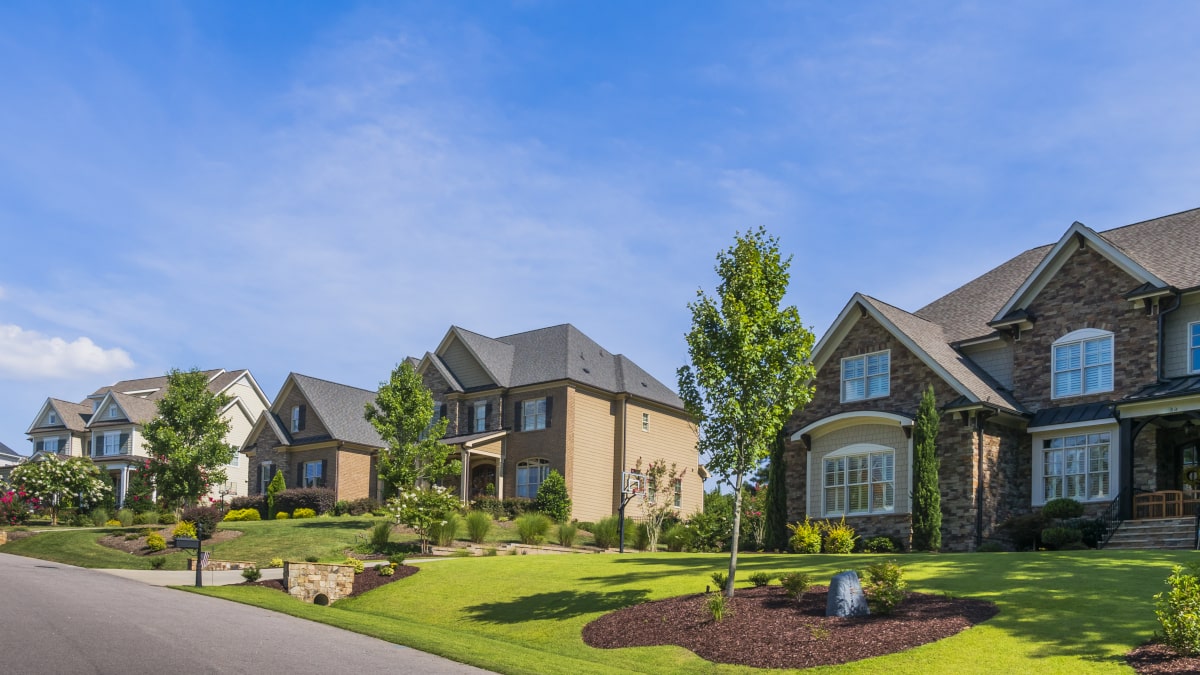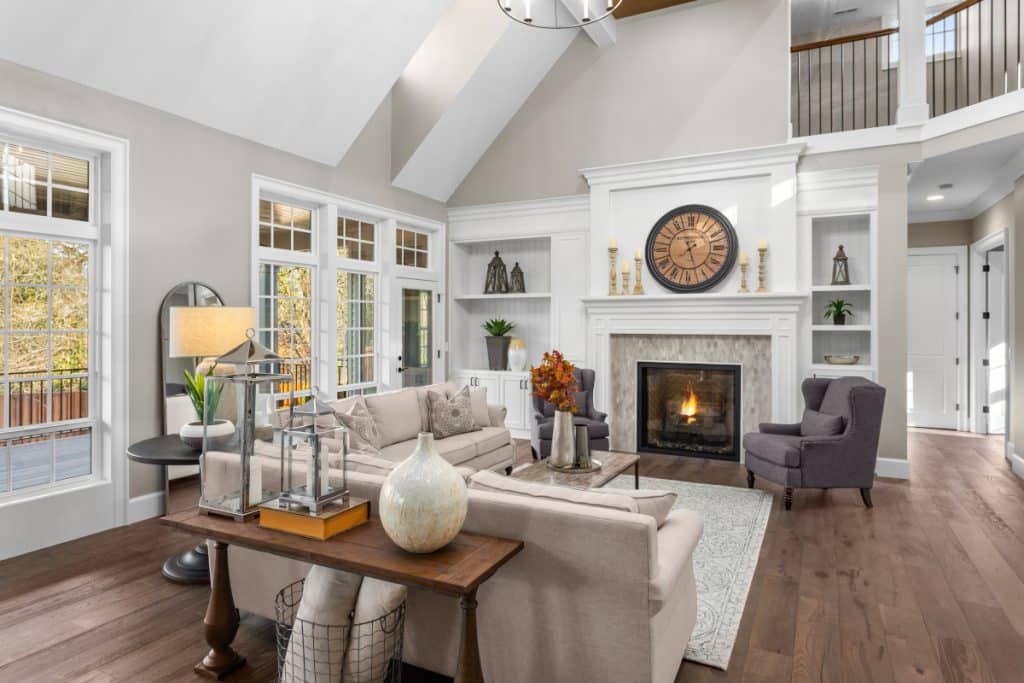
Published
Cost to sell in North Carolina | Closing costs estimate | How to save | Closing cost calculator | FAQs
Real Estate Witch aims to demystify the real estate industry and increase transparency for consumers. We are committed to sharing unbiased content. Some of the links on our site are from our partners who compensate us. Learn more about us and our mission to simplify every step of the real estate journey.
The average cost to sell a house in North Carolina is 6.26% of a home’s final sale price, which includes realtor commission (5.52% of the sale price) and seller closing costs (0.7%).
That means it costs North Carolina home sellers an average of $19,841 to sell a home priced at $318,266 (the average North Carolina home price).
However, you can save big by using our agent-matching service to find a commission far lower than the average North Carolina rate of 2.88%.
Here’s a complete breakdown of the costs of selling a house in North Carolina, including tips on how to save on your sale, and a North Carolina home sale calculator to estimate your costs.
Cost of selling a house in North Carolina
| Fee type | Average fee | Average cost |
|---|---|---|
| Realtor fees | 5.52% | $17,536 |
| Closing costs | 0.7% | $2,305 |
| Total costs | 6.26% | $19,841 |
*Costs assume a sale price of $318,266. Numbers are rounded off and may not be 100% precise.
It’s cheaper to sell a house in North Carolina compared to other states.
The table above shows that it costs 6.26% when factoring in realtor commissions and closing costs. That’s a bit lower than the national average of 6.20%.
Given North Carolina’s relatively low home values, it’s also cheaper to sell on a total cost basis compared to the national average. Get a free CMA from a top local realtor to determine your potential home sale price.
| State | Home value | Cost to sell (percent) | Cost to sell (dollars) |
|---|---|---|---|
| North Carolina | $318,266 | 6.26% | $19,841 |
| Virginia | $371,302 | 5.87% | $21,835 |
| Tennessee | $306,156 | 6.58% | $20,064 |
| Georgia | $317,982 | 6.60% | $20,802 |
| South Carolina | $284,797 | 6.47% | $18,370 |
Overall home prices in North Carolina are higher than in all neighboring states except Virginia. But the cost to sell as a percentage of the home price is lower than in all neighboring states — again, except Virginia.
As a result, North Carolina’s average cost to sell in dollars hovers in the middle of this group of states.
However, North Carolina home values vary quite a bit across the state, so your total home sale costs will also vary.
Here’s an example of your potential costs at various price points, including realtor fees and seller closing costs.
| Sale price | Realtor fees (5.37%) | Closing costs (1.6%) | Total cost |
|---|---|---|---|
| $300,000 | $16,800 | $2,400 | $19,200 |
| $400,000 | $22,400 | $3,200 | $25,600 |
| $500,000 | $28,000 | $3,200 | $31,200 |
| $750,000 | $42,000 | $6,000 | $48,000 |
Factors that may impact your North Carolina home sale costs include:
Typical real estate agent commission in your area
While the state-wide average rate is 5.52%, rates may be higher or lower depending on what’s normal in your area.
Your success in negotiating rates
Realtor fees aren’t fixed — they are completely negotiable. You may be able to negotiate a rate lower than what’s typical in your area.
How you find a realtor
You can potentially save thousands in realtor fees by using an agent-matching service to find a realtor that has pre-negotiated a listing agent fee that’s much lower than the typical listing agent commission rate of 2.88%.
If you need to pay optional costs
The estimated total cost to sell of 6.26% in North Carolina does not include costs like home staging, deep cleaning, and pre-listing repairs, which could add thousands more to your home sale costs.
Your negotiated contract
Closing costs are split between the buyer and the seller in most home transactions in North Carolina. Typically, sellers pay all commissions, attorney fees, and state transfer taxes.
Buyers take on most of the other expenses including inspection costs, appraisal costs, due diligence, earnest money, and buyer closing costs for their mortgage.
Sellers in North Carolina generally don’t pay for buyer closing costs, according to Julie Bell, founder and principal broker of Julie Bell Real Estate, which serves the Research Triangle area (Raleigh, Durham, and Chapel Hill).
Here’s a deeper look at your expected home sale costs.
1. North Carolina realtor commission (5.52%)

Using a realtor costs North Carolina home sellers an average of 5.52% of the home’s sale price, paid out at closing. That fee covers both the listing agent and the buyer’s agent commission.
Your actual cost depends on your home’s value, as it costs much less to sell a $300,000 home compared to a $1 million home, for example. Get a free CMA from a top local realtor to learn your potential realtor commission cost.
| Sale price | Commission cost in North Carolina |
|---|---|
| $300,000 | $16,800 |
| $400,000 | $22,400 |
| $500,000 | $28,000 |
| $750,000 | $42,000 |
| $1 million | $56,000 |
Since commission is the single largest home-selling expense in North Carolina, it’s also your best cost-saving opportunity.
How to save on North Carolina realtor fees
Here are some tips on how to save money on your home sale.
Use a discount broker
A discount real estate broker is a company that offers sellers a reduced commission fee. The broker’s listing agents charge less than the average rate, such as a 1% listing fee vs. the typical 2.5%-3% rate.
Selling at a higher price point leads to even bigger commission savings using a discount broker vs. finding a realtor through traditional sources, like through a personal referral.
Agents from these firms still provide all of the services you’d expect to receive from a traditional realtor, too. Our agent-matching service is free to try with no obligation, so it’s worth starting out here.
» MORE: The Best Discount Brokers for Every Budget
List your home without a realtor
You can avoid paying North Carolina listing commission entirely by selling without a realtor. That’d save you 2.88% off of your home sale.
However, studies show that homes sold without a realtor sell for up to 26% less than agent-listed homes, and you’ll be on the hook for all of the tasks normally handled by a real estate professional.
Bell notes that North Carolina’s housing market has begun to cool, meaning it’s getting more challenging to sell a house FSBO.
“We are now seeing homes on the market for weeks, reductions in price and agents getting homes under contract with offers under ask,” she says. “Buyers are no longer offering appraisal waivers or inspection waivers. So now is a crucial time to have an established agent sell your home instead.”
FSBO sellers aren’t normally listed in the multiple listing service (MLS), she adds, so agents don’t know the home is for sale. “In the [Research] Triangle area, we have over 15,000 agents. Without being in the MLS, that’s a lot of lost PR to the people who have buyers.”
Negotiate a lower rate
There’s no law setting a fixed realtor fee in the state or any part of the country, which means you can try to negotiate a lower commission rate with North Carolina realtors.
Negotiating commission is more likely to work on a high-value property, since the agent will still earn a substantial commission on the home sale, despite the lower rate.
It’s easier to negotiate a lower commission if you’re doing a sell-and-buy transaction, where you sell your home and buy another through the same agent, according to Bell. But she cautions that agents willing to work for lower commissions may be newer or less experienced.
“Sellers right now need that experience, strategy, and agents with connections to get the highest price.”
» LEARN: How to choose the right listing agent
2. Seller closing costs in North Carolina (0.7%)
Seller closing costs typically add another cost of 0.7% or more to the home’s final sale price, according to our data. (Closing costs do not include realtor commission.)
Based on the average North Carolina home value of $318,266, the typical home sellers pays $2,305 in closing costs.
Closing costs for sellers in North Carolina typically include attorney fees, owner’s title insurance, state transfer tax, and recording fees. Property taxes depend on the county.
Other fees for sellers could include Homeowners Association (HOA) fees, property appraisal fees, and mortgage payoff and/or prepayment penalties.
Attorney fees
North Carolina home sellers are required to use an attorney to handle the closing.
Attorneys are responsible for reviewing all of your contracts and legal documents and protecting you from potential issues that may arise during your sale.
“An attorney is absolutely required to close in North Carolina,” notes Bell. “The buyer selects the attorney, and the offer to purchase contract states which attorney will handle the closing.”
Agents work closely with the attorneys to complete the closing, Bell adds.
Real estate attorneys charge an average of $285 per hour in North Carolina, according to legal technology firm Clio.
Save on legal fees!
JustAnswer connects you with an experienced real estate lawyer for only $60 a month. Get personalized legal advice in minutes, any day of the week. You can save an average of $290 every time you get a lawyer’s answer on JustAnswer. Start chatting now!
» LEARN: Do I Need a Lawyer to Sell My House?
State transfer taxes
The North Carolina government charges real estate transfer taxes to transfer your home’s title documents from your name to the buyer’s name at closing.
The state’s transfer tax rate is currently $1 per $500 in home value (or $2 per $1,000). So, for example, a home that sells for $300,000 would face a transfer tax of $600.
This transfer tax rate equals 0.20% of the home’s final sale price, resulting in a total average cost of for a home sale in North Carolina, according to our data. This is a lot lower than the national average cost of $0.
Recording fees
North Carolina charges average recording fees of $0, compared to the national average of $0.
Your county charges recording fees to register the property’s transfer of ownership. The fee amount varies by county and is usually included in the attorney’s fees.
Prorated property taxes
North Carolina home sellers are required to pay property taxes on the days they’ve owned their home in the calendar year. Taxes are prorated and split between the seller and buyer.
The tax is due at closing. Actual costs depend on your annual taxes, and how many days you live in your home up until the closing date.
Speak with your agent or attorney for more details on what you might owe in prorated taxes.
3. Other potential costs
Home preparation costs

The cost of preparing your home for sale could add thousands more to your total upfront costs.
Home staging costs between $745 to $2,659 on average in the U.S., according to HomeAdvisor. But actual costs vary widely depending on location, the size of the home, and the number of rooms being furnished.
If your home needs to be deep cleaned by a professional, expect to spend at least $300 for complete cleaning.
Finally, pre-listing home repairs and improvements could add hundreds, if not thousands more to your budget, depending on how much work your home needs.
Homeowners association fees
You may owe homeowners association (HOA) dues or transfer fees if your home is located in an HOA community. Sellers are typically responsible for covering a prorated amount of their annual membership dues at closing.
If the HOA charges fees to transfer homeownership records to the buyer at closing, the seller usually pays them. Costs vary between communities, but they commonly range from $150-500. Check with your agent, attorney, or HOA board for more information on what you might owe.
Buyer’s closing costs (seller concessions)
Closing costs are negotiable between the seller and buyer, although sellers don’t usually offer to pay a buyer’s closing costs, according to Bell.
“I have seen one listing where the seller said they would pay one mortgage point at closing,” she notes.
Title search fee
The attorneys handling the closing may charge this fee to examine the public records and transfer title ownership to the buyer. Typical title search fees range from $75 to $85, and buyers typically pay this cost, according to Charlotte-based Helen Adams Realty.
Owner’s title insurance
Title insurance protects the owner against any legal claims made against their home or possible mistakes on their deed. It also usually covers the cost of legal fees when defending a claim.
Buyers pay for the owner’s title insurance policy in North Carolina, but it’s possible for both parties to negotiate who pays. Owner’s title insurance is a one-time fee, usually due at the time of closing.
The average cost of owner’s title insurance in North Carolina is $591, less than the national average of $591. Actual costs depend on the location, the insurance provider, and the price of the home.
Home warranty
The annual premium for a home warranty in North Carolina averages $588 for a single-family home, according to Review Home Warranties. Premiums for townhomes and condos are lower at about $505 and $569, while premiums for multi-family homes average $1,038.
Buyers generally cover this cost. “We used to have some sellers cover home warranties until our market went so insane in 2020,” says Bell. “Then absolutely not. It will be interesting to see if they return now that the market is shifting.”
Termite inspection fee
Subterranean termites are a significant issue in North Carolina, where an estimated one-fifth of homes have been or will be infested, according to Triangle Pest Control.
The buyer’s lender may require a pest inspection and report by a licensed pest control professional. A termite or pest inspection is separate from a general home inspection in North Carolina.
Termite inspections cost an average of $100 nationwide but can cost up to $280, according to HomeAdvisor. The buyer often pays for the inspection, while the seller is usually expected to pay for any extermination services.
Capital gains tax
The IRS offers a tax break on capital gains from the sale of your primary residence, as long as you meet certain requirements:
- Single homeowners can deduct up to $250,000 of gains from the sale of their property;
- Married couples can deduct up to $500,000 of gains.
- You must have occupied the property for at least two of the past five years.
- You can also deduct certain repairs and improvements from your home’s cost basis.
» LEARN: How to avoid capital gains on a home sale
Cost of selling a house in North Carolina calculator
Use our calculator to get a rough estimate of what you might walk away with in your home sale. Change the home sale price and closing costs to fit your particular situation.
For more accurate numbers, we recommend finding a local realtor to provide you with a free seller’s net sheet: a personalized document that estimates how much you may earn in your home sale.
North Carolina closing costs: FAQs
What is the true cost of selling a house in North Carolina?
North Carolina closing costs typically average more than 6% of a home's final sale price. That figure includes common closing costs, such as title insurance and transfer taxes, but it doesn't include realtor fees, which add more than 5-6% in expenses.
We break down the best ways to save on North Carolina realtor fees.
Who pays closing costs in North Carolina?
Buyers and sellers have separate closing costs in North Carolina. Prorated property taxes are split between both parties. Sellers are usually responsible for paying all commissions, attorney fees, recording fees if any, and state transfer fees.
However, actual costs depend on your location. We recommend you find a realtor to get a seller's net sheet, which breaks down all of your potential home sale costs.
Do buyers or sellers pay realtor fees in North Carolina?
Sellers usually cover both the buyer's agent and seller's agent commission in North Carolina, which amounts to about 5 or 6% of the home's final sale price. Real estate commission will likely be your single largest home-selling cost. Fortunately, it's negotiable.
What is the cheapest way to sell a house in North Carolina?
The cheapest way to sell a house is to use an agent matching service
that has pre-negotiated a low listing agent fee with its agents. That could save North Carolina home sellers thousands in realtor fees.
Recommended reading
The True Costs of Selling a Home Revealed: What does it really cost to sell a house in the U.S.? We explore all of the common expenses in a home sale, and how you can save thousands.
Steps to selling a house in North Carolina: Selling your home in the Tar Heel State doesn’t have to be overwhelming. Our guide covers the entire process from choosing an agent through closing, complete with expert tips.
How to Find a Realtor: Find out how you can connect with a great real estate agent. We help you zero in on the best approach, whether you’re selling or buying.
Seller Net Sheet Guide: Learn how a net sheet can help you estimate your potential home sale proceeds, and how to get one for free.
Negotiating Realtor Commission: Knocking your real estate commission down just one percentage point could save you a ton of money on your home sale.

Leave a Reply